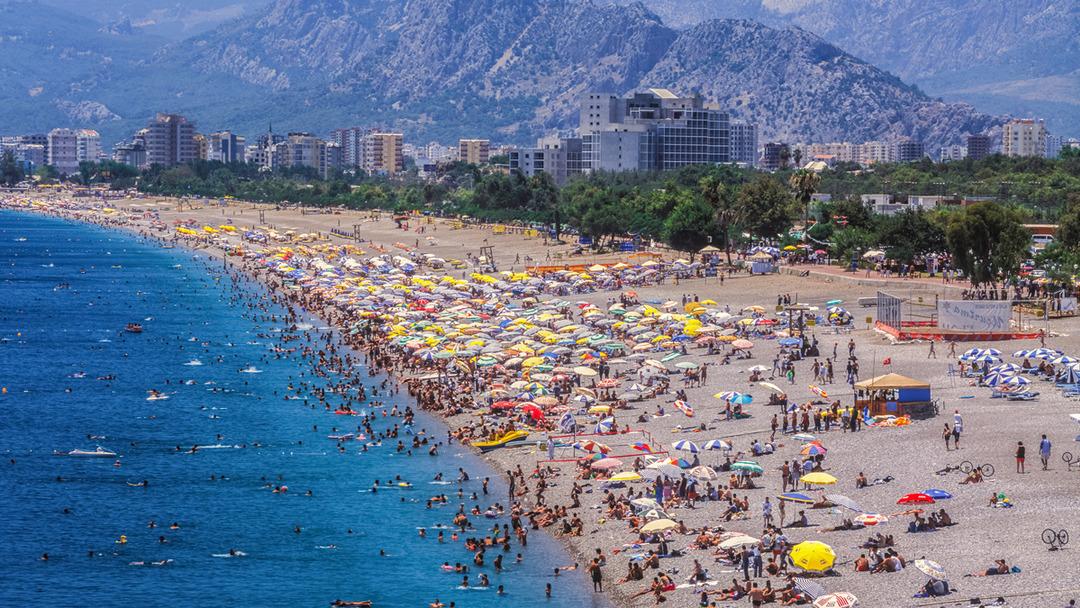It's now being seen on Turkish beaches! Experts warn of 'Vibrio': Be careful if you have these symptoms!

Vibrio bacteria, which can enter the body through open wounds and cause fatal infections, have reportedly been spotted on Turkish beaches. According to the latest warning from the European Centre for Disease Prevention and Control (ECDC), Vibrio bacteria, previously found only in the Baltic Sea, are now also being detected in the North Sea and in enclosed swimming areas. These bacteria thrive in high temperatures and low salinity, particularly in salty and brackish waters (a mixture of salt and freshwater).
Its DNA was found on the Marmara, Aegean, and Mediterranean coasts.A similar danger applies to Turkey. Recent studies have found DNA from bacteria such as Vibrio parahaemolyticus and Vibrio vulnificus along the Marmara, Aegean, and Mediterranean coasts. According to a report in Milliyet, Urology Specialist Dr. Uğur Aferin at Istanbul Florence Nightingale Hospital stated that those who come into contact with the sea during the summer months should be careful.

Aferin said, "Vibrio bacteria thrive in warm, salty waters. Vibrio cholerae, in particular, can enter the gastrointestinal tract through the ingestion of contaminated seawater and cause cholera, which causes severe diarrhea and dehydration. While cholera cases are rare in Turkey, the risk is not zero."

Aferin, stating that the real risk arises from open wounds coming into contact with the sea, said, “When species like Vibrio vulnificus come into contact with the skin, they can cause tissue infections and, in rare cases, fatal infections like necrotizing fasciitis, also known as ‘flesh-eating bacteria .’” Aferin also drew attention to seafood consumption, saying, “Vibrio parahaemolyticus, which can be transmitted through shellfish like raw oysters, can present with abdominal pain, vomiting, diarrhea, and fever. In individuals with weakened immune systems, these infections can spread to the blood and turn into sepsis.” Aferin also touched on the fact that the risk of urological infection increases during the summer months, noting that, especially in women, prolonged exposure to wet swimsuits after swimming triggers urinary tract infections, adding:
"The genital area remains moist and warm, creating a breeding ground for bacteria. Bacteria such as E. coli, in particular, can reach the urinary tract in this environment. The condition is more severe in individuals with weakened immune systems."
THERE ARE RISKS IN POOLS TOOExperts emphasize the risk of infection in pools used to cool off in hot weather, stating that infections from bacteria like rotavirus, hepatitis A, salmonella, shigellosis, and ecoli can be very common in pools. Experts also note that children can experience severe diarrhea and vomiting, and warn against swimming in pools if they are experiencing diarrhea, vomiting, or have open skin wounds. Dr. Hüseyin Yıldız, a specialist in the Department of Pediatrics, said, "We do not recommend swimming in the sea before 4 months of age or swimming in a pool before 6 months of age. This is because children at this age may have poor head and neck control and may experience serious dehydration and heat loss."

■ Marmara, Aegean and Mediterranean coasts
■ Indoor and warm swimming areas
■ Salty and low salinity waters
HOW IS IT TRANSMITTED?■ From open wounds
■ Raw seafood (especially raw oysters)
■ By swallowing polluted sea water
WHAT ARE THE SYMPTOMS?■ Severe diarrhea
■ Vomiting, fever
■ Skin redness, swelling
■ Tissue infections
WHAT SHOULD BE DONE TO PROTECT YOURSELF?■ Take a shower after the sea
■ Do not stay in a wet swimsuit
■ Cover the open wound with a waterproof bandage
■ Do not consume raw seafood
■ The need to urinate should not be postponed
mynet




